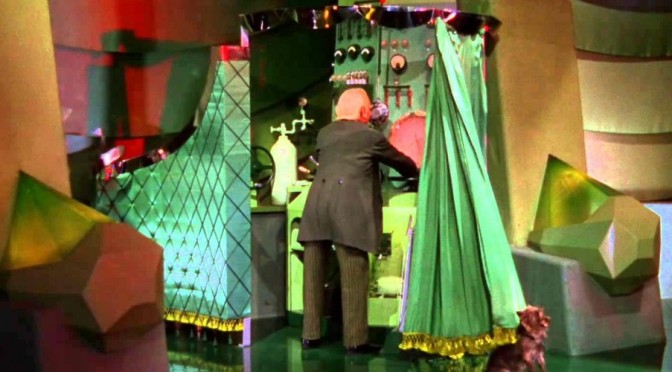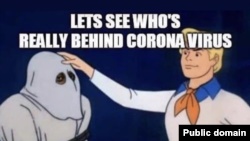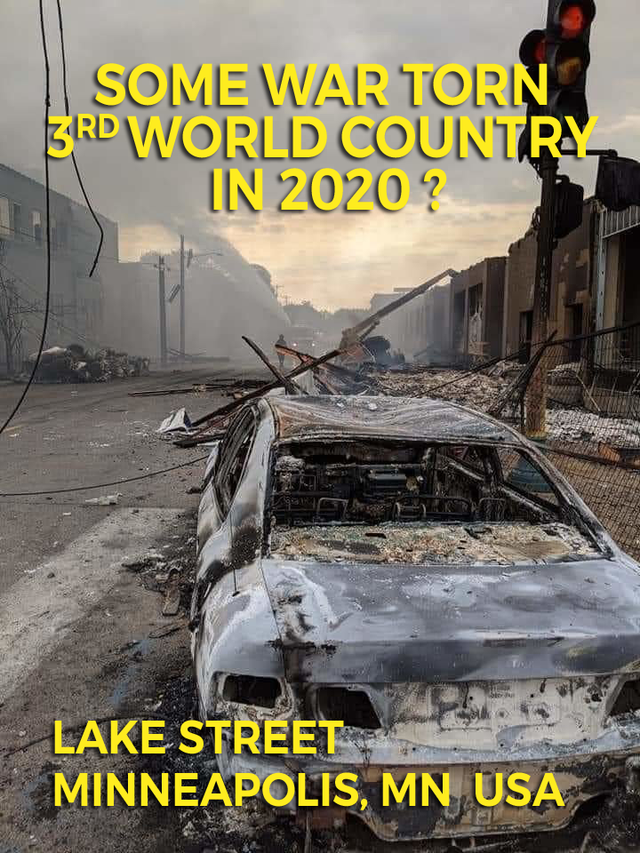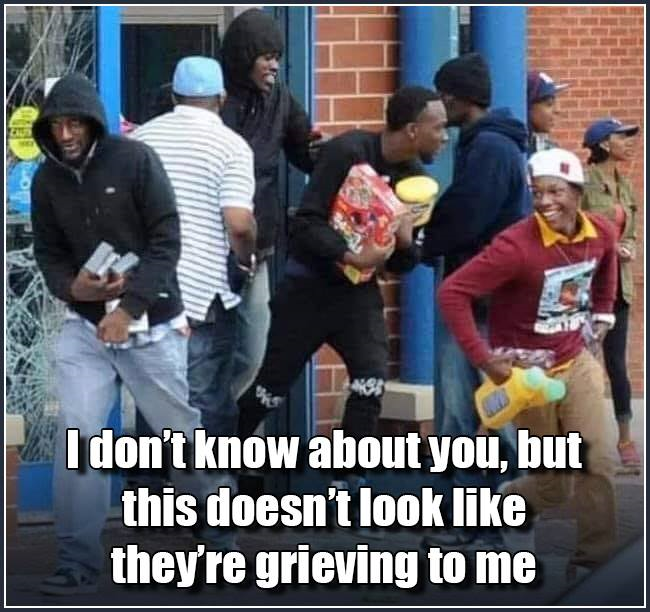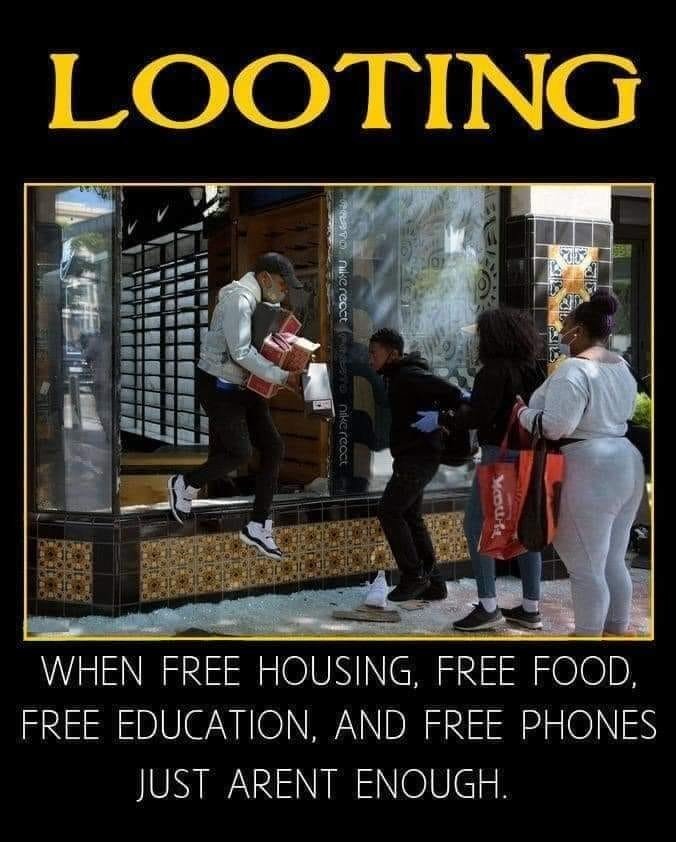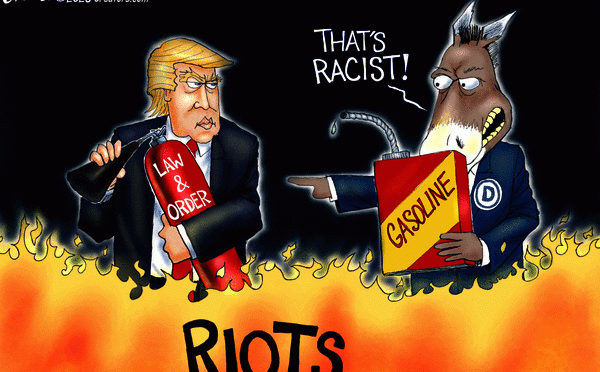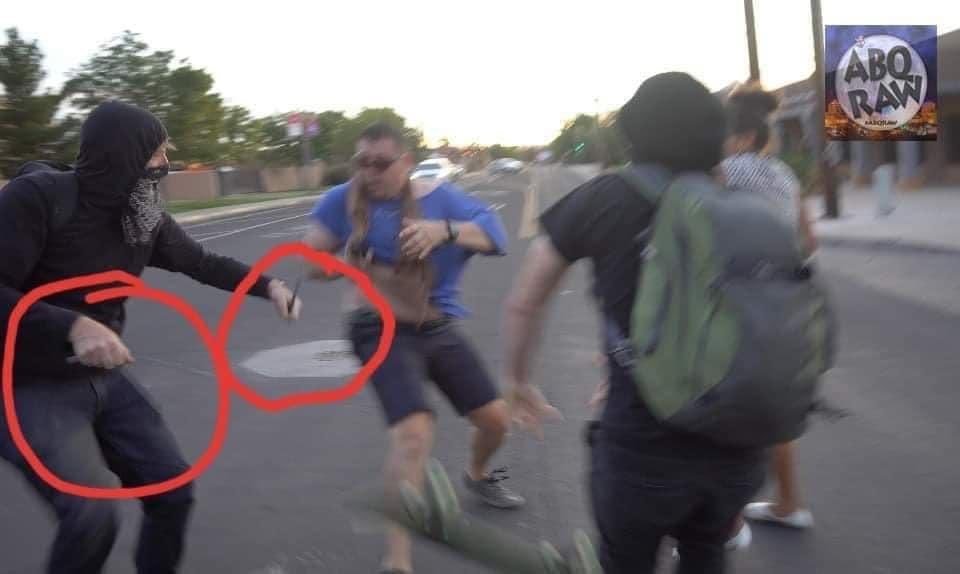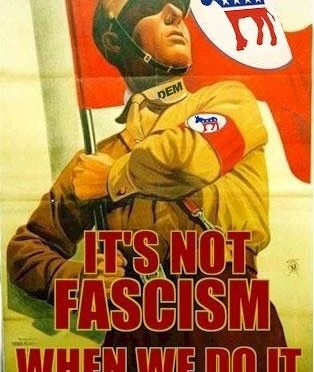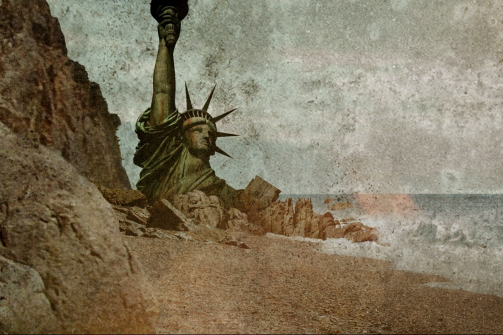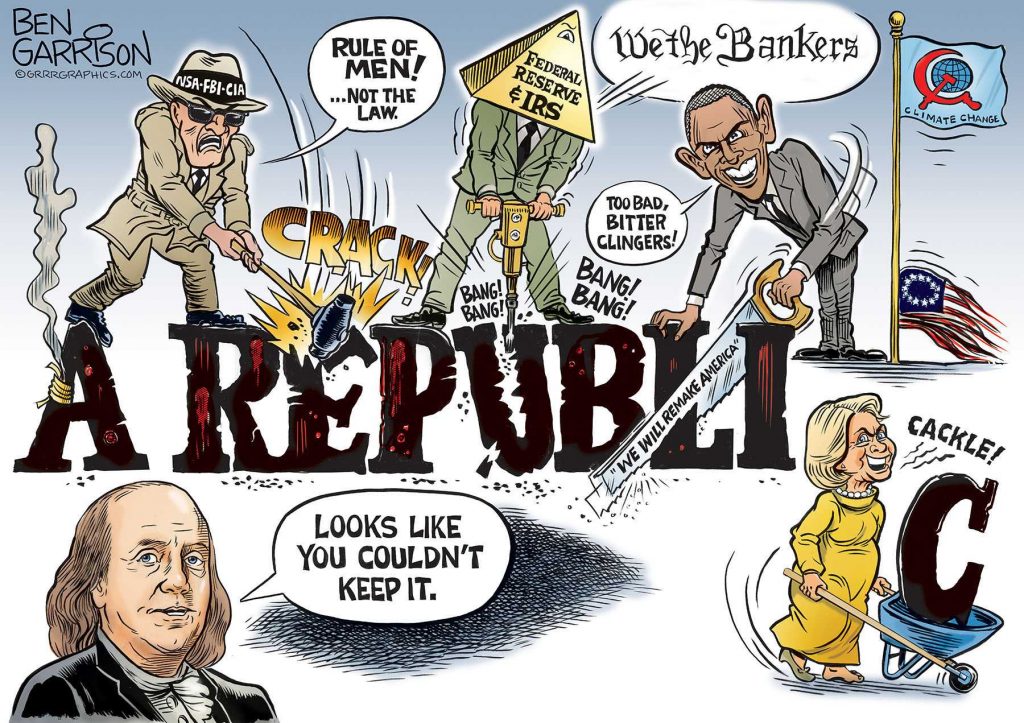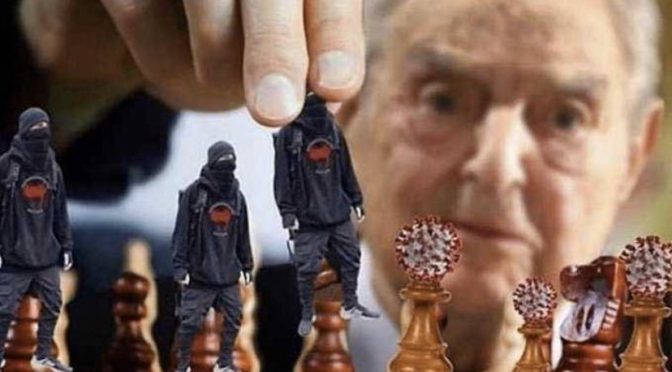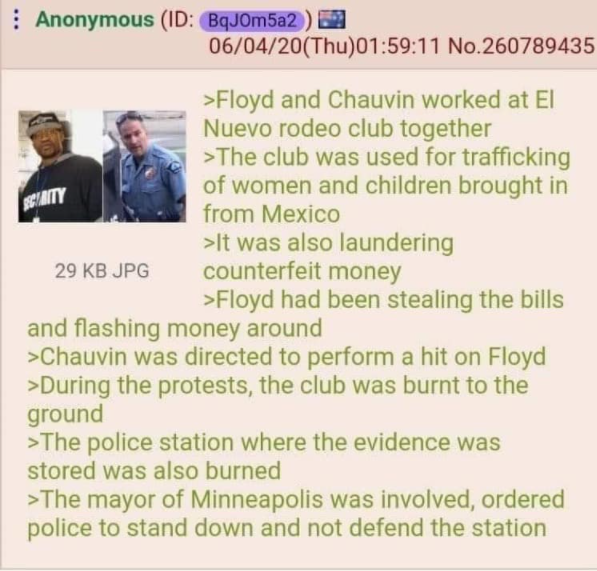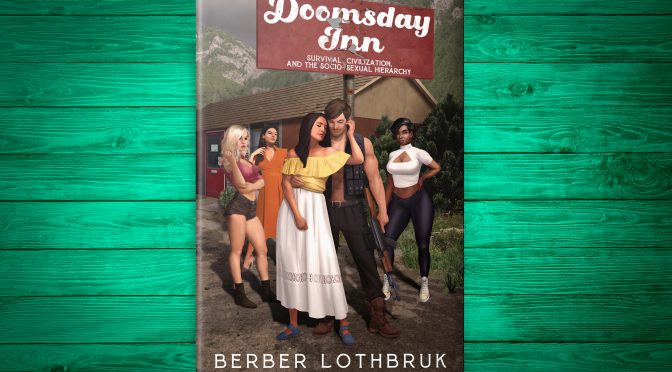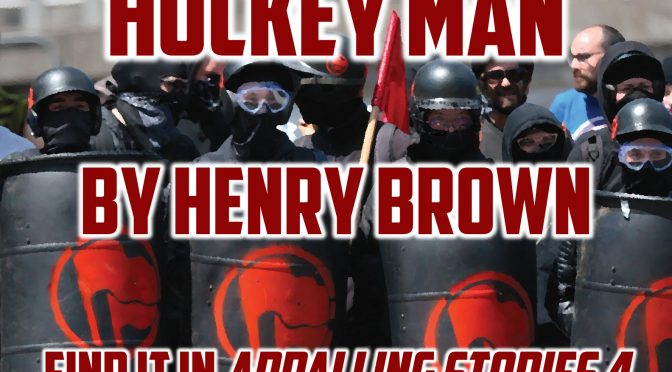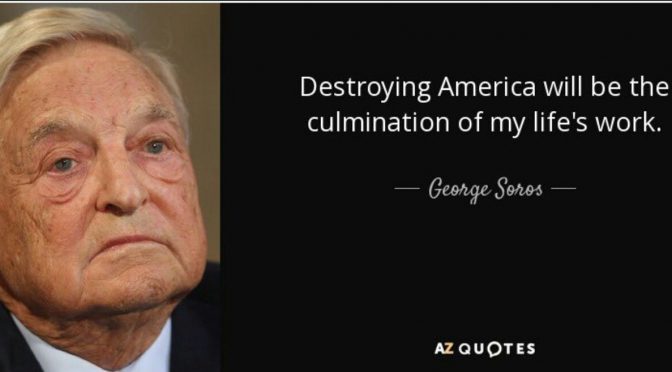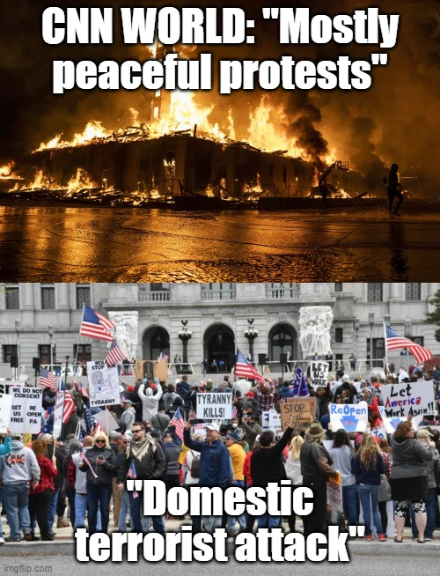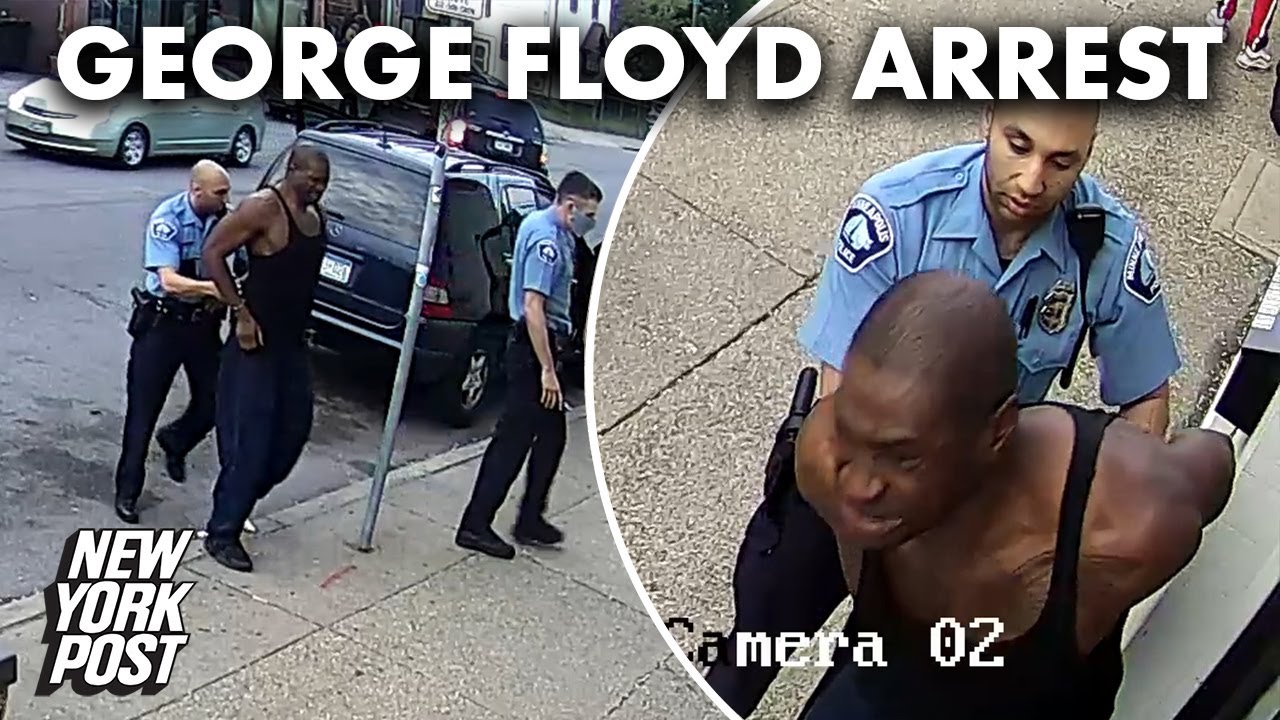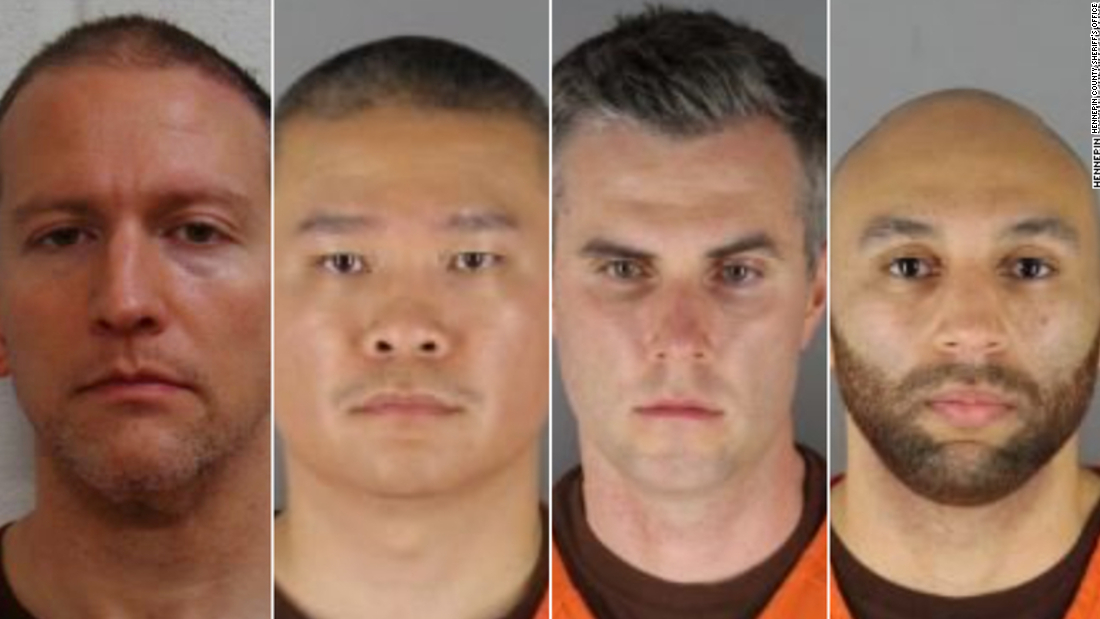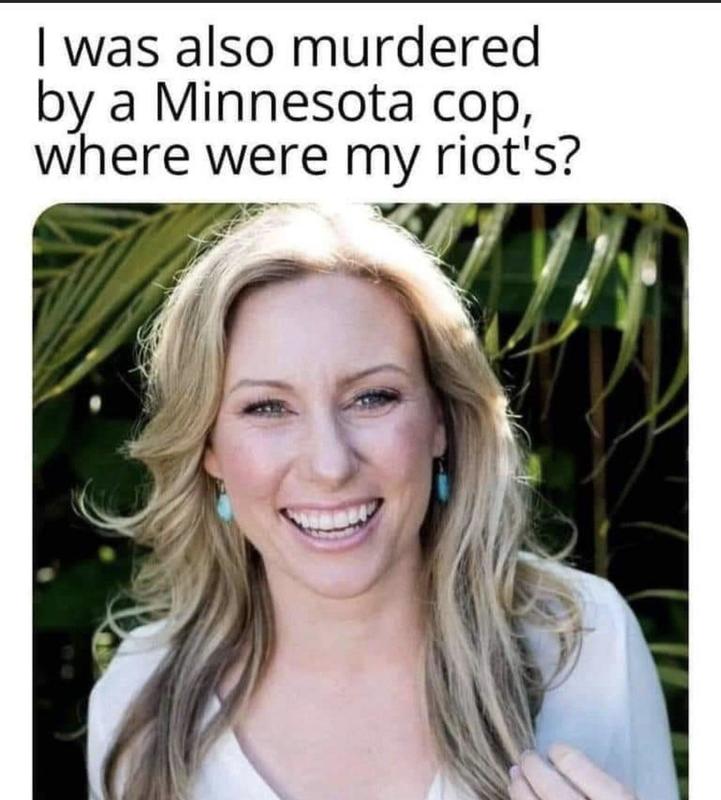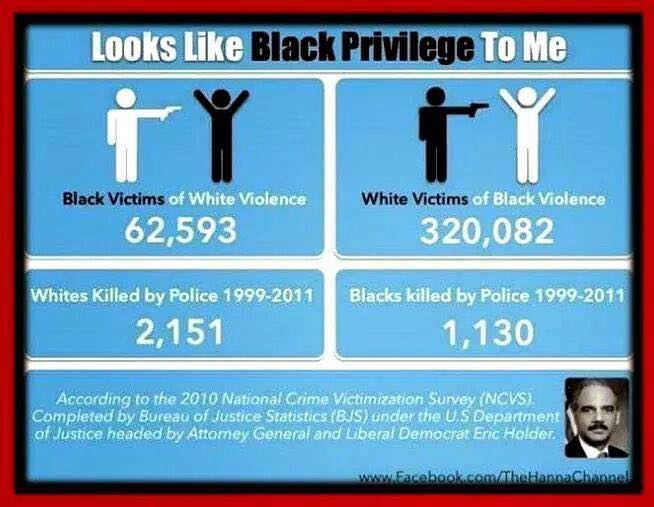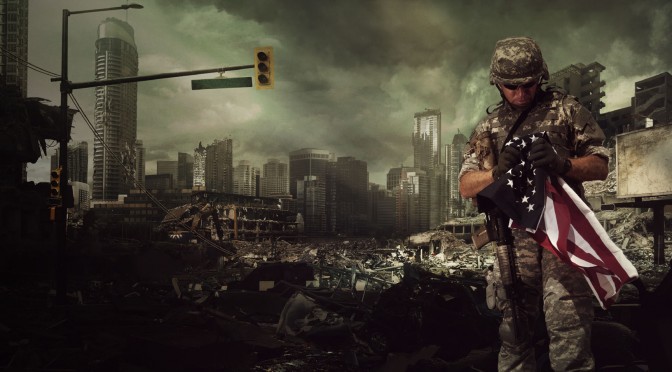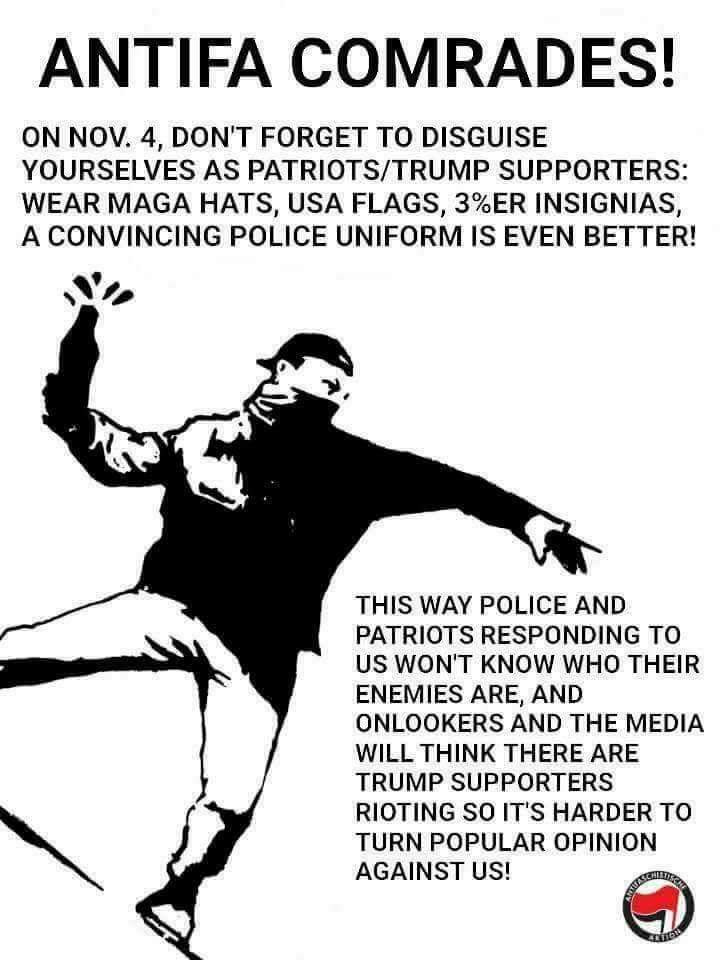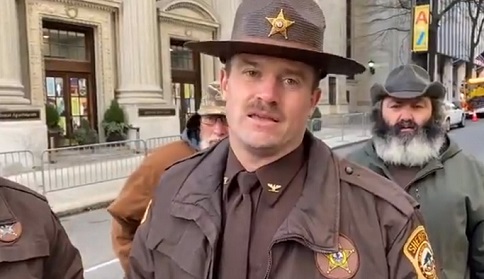Are we seeing the Cold Civil War turn hot? We will probably know relatively soon. Don’t let it be forgotten that while peaceful citizens were arrested for “violating quarantine,” violent criminals were being released from prison into the population. What could possibly go wrong after that?
There is reason to suspect all of the protests around the country are being infiltrated by agitators (funded by George Soros and others like him) who turn the demonstrations into riots. That would fit the pattern that has played out many times before.
I’ve been expecting a scenario like this for some time, and in fact am surprised it took this long. I’ve played Chicken Little a few times before, and am trying not to do it now. I don’t know exactly how this is going to play out, but I am a little worried.
If this does turn out to be the “storming of the Bastille” moment that sparks a civil war that has been being stoked for years, then selling books is probably not going to be a priority for me. Nevertheless, this scenario, once again, reminds me a lot of a subplot I wrote a few years ago in False Flag, which seems possibly prophetic right now.
(Keep in mind that the line between “good guys” and “bad guys” is blurred, as often in real life. And opinions of characters are not necessarily shared by the author.)
Surrounding the Courthouse, and other government buildings, was a small army of police. They wore body armor, combat helmets and ballistic glasses. They bore pistols, shotguns, carbines or grenade launchers for tear gas shells. They were backed by MRAP vehicles, some mounted with water cannons. It was a scene that just didn’t look right in America.
Jurors, attorneys, city government officials and other V.I.P.s exited the Courthouse inside the thick blue lines. They got in their vehicles surrounded by phalanxes of cops and blew town before the news broke, some with police escort.
There was no snow on the ground, but it was chilly. In the ‘hood most everyone stayed indoors watching the TV. No shouting, cussing, woofer bumping or sirens echoed through the streets. Almost nobody could be seen outdoors, hanging out or wandering in the alleys. Some of the drunks even sobered up for the occasion.
It wasn’t coincidence or osmosis that had the inner city all on the same sheet of music. Their marching orders had come by committee. From the veiled, non-committal statements by the Attorney General down to the blatant declarations of the Panthers, Crips and community organizers of various affiliations (most of whom came in from out of town for the occasion), people who were normally at each other’s throats sat prepared to spring into collective action when the verdict was announced.
The talking heads on television announced that the police involved in the fatal beating had been acquitted. Thousands of doors banged open at once and people flooded into the streets, shouting their rage. They wielded sticks, bats, pipes, knives…and some had guns. This wasn’t going down like it had in the past. Whitey wasn’t going to get away with it this time.
***
John Tasper had covered the windows of his sporting goods store with plywood, but for now he kept the front door propped open. He stood outside the door so he could observe down the street in both directions. He hoped there would be no riots. In fact, he hoped the cops involved in the beating all went to prison, because he saw the videos of what they did to Delton Williams. But if they beat the rap, as cops usually did, he at least hoped that the riots wouldn’t spread to this area.
The verdict was announced, and the cops beat the rap.
He decided he should stay at the store just in case. And he should carry his loaded Browning 9mm…just in case.
He found it curious that with all the police mobilized and geared up like they were ready to do battle with ISIS or something, that absolutely none of them were in this business district. Looking up and down the empty street, John figured somebody could fly through there at 120 miles-per-hour and not have to worry about getting pulled over on a night like this.
Somebody called to him from across the street. “Hey, you hear anything yet about which way the mobs are going?” It was the guy from the cellphone store, who also appeared to be packing heat.
Most of the stores John could see were boarded up, like his. A couple of them had “BLACK OWNED” spraypainted across the plywood. This was one situation where John couldn’t blame people for playing the race card—if they had it to play.
“No—nothing,” John replied. “The news shows are all still filming around the courthouse.”
The other man walked out into the middle of the street and took a long stare in both directions. “I guess it’s early yet.”
John walked out to take a look from the center of the empty street, himself. With the sun setting, the landscape was tinted orange. John thought the scene looked like something from a zombie movie—right before the zombies attacked. “They only just announced the verdict.”
The man extended his hand. “Ken Fowler.”
John shook it. “John Tasper. Nice to meet you.”
“It’d be nice under other circumstances, right?”
They shared a chuckle.
“Never seen the city like this,” John said. “It’s like a ghost town.”
“Not for long, I’m afraid,” Ken replied, and pursed his lips.
“You think they’ll come this way?” John asked.
“They are going every way,” announced a voice with an Indian accent. Ken and John turned their heads toward the sound and saw a short, dark man heading their way from the cafe on Ken’s side of the street. John had never eaten there, being a little wary of any Asian food—even from India.
“They are leaving their neighborhoods and going in every direction,” the Indian man said, when he reached them.
“How do you know this?” Ken asked.
“The local access channel is reporting it,” the man replied. “It does not look random at all. It looks rather organized.”
“Oh shit,” Ken said.
The Indian extended his hand. “I am Nihar. I own the Calcutta Cafe.”
They shook his hand and introduced themselves. Nihar looked at John’s Browning and Ken’s Glock. “This is like the wild west out here. Are you going to shoot somebody?”
John frowned. “I hope nobody has to. I’m hoping the most I’ll have to do is scare somebody into leaving my store alone. With any luck, maybe they’ll just pass this area by.”
“You don’t have a gun?” Ken asked Nihar, who shook his head.
“Then you really ought to get home,” John said. “Stay with your family. Nothing good can come out of you being here.”
“My family is with me,” Nihar said, pointing back to the cafe.
“Are you crazy?” John asked. “You need to get them out of here right now!”
Nihar’s eyes were wide. He looked on the verge of panic. “But…if I lose my cafe, I lose everything.”
“You being here ain’t gonna change whether you lose it or not,” Ken said, “if you can’t defend it.”
Another man joined them, from the clothing store. He at least had a stun gun and some mace. They stood talking in the middle of the street.
All of them urged Nihar to take his family and evacuate while the streets were still clear. They made no promises, but told him they would try to keep rioters away from his business if possible.
They all stopped talking when an explosion sounded in the distance.
“What was that?”
“A gunshot?”
“Maybe something just got blown up,” Ken said. “Rioters set places on fire when there’s nothing left to steal.”
“Maybe it’s the cops,” the clothing store owner suggested, hopefully. “Maybe they’re moving out to stop the riot. That could have been a flash-bang or something.”
John turned to Nihar. “This might be your last chance to get your family somewhere safe.”
Nihar thought this over for a moment, then nodded. Finally he returned to his cafe. Minutes later they heard a car engine start from behind the cafe, and the vehicle sped away.
“You might should do that, too,” John said, to the clothing store owner.
“Really?” The man hoisted his stun gun. “You don’t think I can keep them away with this?”
They never answered. All of them heard it at once. The source of the noise was so distant, it had gone unnoticed for a while. When a car alarm went off, though, they suddenly noticed the din growing underneath it, composed of glass breaking, smashing noises, and hundreds of enraged voices.
“Good luck,” Ken said, turning to go back to his store.
John bid him and the other guy the same, and went back to his store, shutting and locking the door behind him.
His phone rang. The caller ID showed it was his wife. She was probably worried and just checking on him. He answered, and was immediately taken aback by her hysterical demeanor.
“I got a call from Janice,” she said. “They’re tearing her neighbor’s house down!”
“Who is?” he asked.
“The rioters! Her neighbor had a flag in his front yard, and still has those bumper stickers on his car. They broke his door down! Janice hears screaming from inside the house! John, he’s got a wife and kids in there!”
John swallowed. “Just keep calm, okay?”
“Keep calm? John, she says they’re headed this way! I hear gunshots down the street!”
Icy fingers tickled down John’s back. He had assumed the riots would be limited to business districts as they had been in the past. The agitators stirring them up were uniformly socialist, and it only made sense they would try to focus the mob’s anger on “capitalists.” This time they were spilling over through residential neighborhoods?
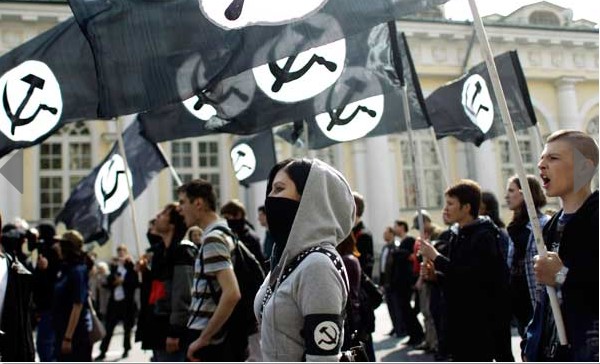
John had moved his family after the Feds raided his house. Too many bad memories for the wife and kids. Plus, living closer to the store meant a shorter commute and therefore less gas money; and his mortgage and utilities were less expensive in the city than in the suburbs. They lived in a mixed neighborhood where there didn’t seem to be that much racial strife. It certainly didn’t seem to be a likely target for rioters.
“Alright, let’s not take any chances,” John said. “Take the kids, throw some blankets and pillows in the car, bring some snacks, and come here to the store. Park in back and you’ll all stay here with me tonight.”
“Will we be safe there?” she asked, voice quavering.
“I’ve got the windows boarded up,” he said. “I’ve got the Browning. I need you to load the Sig/Saur and keep it in your purse. Take all the other guns and put them in the trunk. Okay?”
“Okay,” she said.
“Come straight here,” he said. “Don’t stop for anything.”
***
The mobs bypassed most of the houses in residential areas at first. Exceptions were made for homes which appeared to be occupied by the enemy. Indicators of enemy occupation included signs like one that said “Land of the Free; Home of the Brave,” or bumper stickers like an old one on some honky’s car that said “Real Scandals. Phony President.” Confusion ensued when some driveways with stickered cars were identified as being part of the wrong house. But once a window was smashed or a door broken down, nothing inside the house was off-limits, whether the enemy lived there or not.
In the mixed neighborhoods, white and Hispanic families mostly stayed indoors. There was good reason to be afraid. Some houses were being set on fire. Other houses had armed occupants who chased away the mob. In a couple cases, the mob called their bluff and shots were fired.


White residents called friends and family, panicked and exaggerating about the scope of the violence. What was in actuality a few houses, and occasional gunshots, became the neighborhood burning down and a firefight on the streets after they finished telling the story. The recipients of those phone calls made calls of their own, each adding their own exaggeration or embellishment until fear blotted out whatever sanity there had been before the verdict.
On Polk Street, young men began appearing outside by twos and threes. They wore pointy-toed boots and cowboy hats. They congregated into ever-growing clusters, expressing their opinions about what “them niggers” were doing to the white folks in other neighborhoods, and what they might try when they reached here.
It didn’t take long for them to form a mob of their own, and start heading toward the riots, to teach them coons a lesson about who was really bad. Others heard the white mob outside and came out to join them, bringing whatever weapons they could find. One of the charismatic, spontaneous leaders summed up the sentiment of the mob at large: “It’s time to settle this nigger problem Texas-style.”
***
John’s wife arrived behind the store with their kids and some provisions just before the mob got there. John went out the back door and saw the mob bearing down on them, as his wife threw open the car door and got out, eyes nearly bugging out of her head.
John paused to put a reassuring hand on her shoulder. “You did good. But keep it together. Get everything in the store, right now. I’m going to keep them away from you. Just get everything out of the car and into the store as fast as you can, okay?”
She nodded, wiped tears from her eyes and grabbed an armload of bags from the car, telling their kids to do the same. John went to the rear of the car, positioning himself between his family and the advancing rioters.
The angry black faces were close enough to distinguish, now, lit by the lamp posts over on the street. The foremost ranks of the mob broke into a run, frenzied at the sight of live meat. Heart pounding like a jackhammer, John pulled the Browning, hoping he’d only have to fire a warning shot to give his family some time.
When the front runners saw that John had a pistol they slowed to a stop, and almost got trampled by those behind them. John checked over his shoulder and saw his son hauling an armload of guns from the trunk. His wife and daughter were already inside.
“How much more is in the car?” John asked.
“I think that’s all of it, Dad.”
His son was obviously scared, but was still working like a trouper, while his sister and mother were safe inside.
“Good job, son. Get in there but don’t shut the door yet. I’ll be right behind you.”
His son complied. John backed up, shutting his wife’s trunk and car door as he passed. He didn’t bother locking it—that would just cause the rioters to bust the windows in. All that was left in the car was the stereo. If they only stole that, maybe the damage would be minimal.
John backed toward the open door. He was going to make it. The rioters were leery of his Browning. He would be able to get inside and lock the door before they reached him, even if they began running again. Then he saw a young guy covered with gang tatts push from behind to the front rank, holding a gun.
John felt the blow as he heard the crack of the shot. Searing pain creased his arm and side. He fell back and would have gone down, but hit the door instead. The corner of the steel door split his scalp and hurt like blazes. He got his bearings and lurched inside, pulling the door shut and locking both the knob and the deadbolt.
His wife screamed. His daughter was crying. He heard the mob outside get closer–both the ones in back he’d just escaped from and the much larger group on the street in front. Hard objects banged off the steel door. He heard glass breaking—they were smashing the windows in his wife’s car anyway.
He touched the throbbing painful spot on his head and his hand came back bloody. He pulled at his shirt to see what all damage the bullet had done to him. His phone began ringing.
“See who that is, will you, son? I don’t want to get it bloody.”
John’s wife got ahold of herself at the mention of blood. Then she saw it, and crossed the store to get the first aid kit.
Their son pulled the phone from its holster and checked the caller I.D.
“It’s Uncle Joe.”
John sat on the floor, trying to gather his wits. His wife brought the first aid kit, and began working to stop the bleeding.
Something hit the steel door so hard and so heavy, it shook the whole wall. It had to be a human body, John thought. He was thankful that the door opened outward, so that it was secure by both the jamb and the deadbolt.
His wife took the phone and answered it.
***
Joe Tasper had been down sick with the flu for the last couple days. The fever was bad and he’d spent almost every hour of those two days in bed. He still felt horrible, but at one point remembered the last conversation with his brother. John had said something about the possibility of a riot if the verdict didn’t go against the cops.
Joe turned on his television and saw that the verdict had been announced already. And there were, indeed, riots.
He called his brother, who would probably be keeping vigil at the store.
His sister in law answered. In a shrill, hitching, sobbing voice she blurted out a long monologue with almost no space in between words. The gist of it was that the whole family was at the store; rioters were outside the store trying to get in; and John had been shot. In the background he could hear pounding on the doors of the store, and his niece crying.
Where were the cops, Joe wanted to know. He’d seen hordes of them on the news, armored and geared up.
His sister in law didn’t know where the police were, but they sure weren’t outside breaking up the riot.
With a surge of adrenalin, Joe got dressed in a hurry. The danger his brother was in cut through the fog of his fever. He grabbed boxes of shells, his 12 gauge Mossberg from the closet, wrapped it in a blanket and ran down the outside stairs to his truck.
His apartment was in the suburbs. It was doubtful the riots would reach his neighborhood on foot. So ordinarily he would be safe if he just stayed put. Instead, he had to run toward the trouble. The sound of his terrified niece crying in the background haunted him. She’d been through enough already as a little girl.
His brother was shot, but he didn’t know how serious the wound was. John’s wife said something about trying to stop the bleeding, and that sounded bad. It was doubtful an ambulance would risk the rioters to get to him.
And what if they managed to break in? Or what if they set the store on fire with John and his family inside?
Traffic was light that evening and it got lighter as he drew closer to the city proper. What traffic there was headed the opposite way. People were getting the hell out of Dodge. Joe put the hammer down and negotiated the roads just as fast as he could safely go.
Less than seven miles from the store, a cop car pulled out of a speed trap behind him with lights flashing.
He couldn’t believe this. Just could not believe it. Hundreds of cops surrounded City Hall and the Courthouse, protecting the fat cats while people like his brother were under siege, but this guy had nothing better to do than hand out speeding tickets.
He kept going. If the pig wanted to follow him right into the riot, maybe he’d have no choice but to do his job.
The cop gave chase for over a mile.
Joe would have run the stoplight, but a fire engine, ladder truck and ambulance crossed his path at the intersection, sirens and horns wailing. They weren’t heading in the direction of the store. At least they were on their way to help somebody. Joe hit the brakes, hard.
When he came to a stop, the police car rolled in front of him at an angle, parking so that it cut him off.
***
Officer Cleveland Parker adjusted his belt when he stepped outside his cruiser, and turned his big Mag-Lite on, his other hand unflapping his holster. He clocked this fool doing over twice the legal speed limit. It was too bad the jails were going to be full of brothers soon, because he’d love to throw this white boy in the slammer.
Then again, maybe this pink toe was more than a speeder. He was driving toward the trouble instead of away from it, so unless he was crazy or on drugs, he must be up to no good. Either way, Cleveland would make sure he lost his license.
The pickup truck’s headlights switched to high beams, impairing his vision. This clown thought he was cute. Cleveland liked to blast a pulled-over vehicle with his own high beams, and add the side spot for good measure. Then when he reached the driver’s window, he liked to blind them with the Mag-Lite. He didn’t appreciate this punk using his techniques.
“Turn off those lights and shut off your engine!” he commanded, pulling his pistol. Oh, he was going to ruin this fool’s life, for sure.
Those were the last coherent thoughts Cleveland Parker would ever have. The pickup’s door swung open, and less than a second later most of Cleveland’s head disintegrated in a hail of buckshot.
***
Joe Tasper and his pickup truck were gone by the time the Polk Street boys passed the scene of the traffic stop. So were Cleveland Parker’s sidearm, his burner piece, the riot gun from the car, all his ammo, and his ballistic vest. The Polk Street Boys found the lifeless uniformed black body on the street next to the car, and stripped it of valuables without so much as a pause to consider what might have happened. If any of them appreciated the irony, it was lost in the mobthink
One of them got behind the wheel. Others piled in until the car was full. Others hopped on the hood, trunk and fenders, whooping rebel yells and cattle calls. The overloaded cruiser now led the mob toward the riots. One of the young men in the front seat got on the police radio, laughing, and made many comments about the “headless nigger cop.” He hoped there would be plenty more dead cops before the night was over, because they were obviously useless.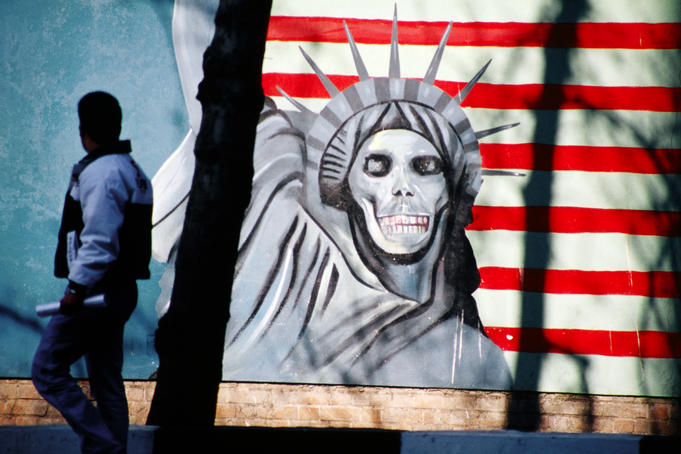
***
Willie Mae Harris had sore feet. She wasn’t used to walking so far.
She and many other women of various ages had followed the advanced party of looters at a safe distance. Her son Rick was up there, and she tried to keep track of him. Her daughter Shirolle and grandchild Antwoshae were in the same group as her. She lost track of the rest of her household along the way, but hopefully they’d be able to find some good stuff. In any case, her, Rick, Shirolle and Antwoshae would grab all they could carry.
She heard a gunshot from the alley behind a boarded-up store. The skittish crowd recoiled at the sound, but realized the action was happening elsewhere and kept going.
Rick turned around, eyes searching the group of women behind him. “Mama?”
“Go on up there!” Willie Mae called to him, pointing to the side of the street opposite where the gunshot came from. “Try them stores over there! Act like you got some sense, boy. Damn!”
Rick couldn’t hear her over all the noise, but understood by her gesture where he should go. He pushed to the other side of the street.
A big commotion went on up ahead. Willie Mae asked the folks on either side of her what was going on. In time word was passed along from the front: there was a clothing store up there with some nice, expensive name brands.
The forward progress of the looting party slowed and stopped now that it reached a prime resource conglomeration. Willie Mae and her peeps went forward until they saw a swarm of young men working to tear the plywood shielding off a store front.
The plywood came down with a ripping sound and a chorus of victorious profanity. Glass shattered as the young men smashed out the windows and flooded into the store.
Willie Mae grabbed Shirolle and pushed her forward, then gestured for Antwoshae to go with her. Willie brought up the rear. She was jostled around and nearly crushed a few times by others, but managed to avoid cutting herself stepping inside the shattered store front window.
Something was happening in the center of the store. Racks were knocked over as a group of maybe nine young brothas swarmed on something or somebody, kicking and beating on it with their weapons. Word was passed back that some white fool used a stun gun on one brotha, and sprayed Mace at another. Willie Mae turned to the shelves while others were distracted by the violent beating.
Antwoshae found some nice sneakers, and Shirolle some designer shoes. Willie was only able to get a suit before everything was picked clean, and almost lost that to a young brotha with a knife before he took a better look and decided he didn’t like the suit. She didn’t have a chance to check the size, but was sure she could sell it if it didn’t fit somebody in her house.
Something else buzzed through the crowd, and people evacuated the clothing store, trampling others in their haste. She spotted Rick and grabbed his arm. “Where they all goin’?”
Rick bent down to speak in her ear. “There a store we done passed already. Got cellphones and stuff, Moms.”
“Well get over there,” Willie said. “I’ll catch up. Get me one of them iPhones and a few chargers.”
***
Ken Fowler used his outside security cameras to watch the developments outside. At first the mob passed his store by. It looked like he and the “BLACK OWNED” stores might survive.
He shook his head, biting back the rage, as the rioters got inside the clothing store. His video feeds, with only the street lamps for lighting, didn’t pick out enough detail to see faces. It looked like a solid mass of black cancer out there.
Then they came back toward his store.
Fear and anger made him feel weak and energetic at the same time. He took a position behind one of his merchandise counters, pulled his Glock and waited to see what happened.
They went after his door. They beat on it with hard implements. Ken’s blood ran cold as he heard the plywood cracking over the din of cussing, yelling voices.
Ken had gone the extra mile securing the plywood, and they had a lot more trouble with it than they were expecting. Still, sliver by sliver, they hacked and ripped it away. Finally the plywood shielding was gone. An electric charge wrapped around Ken’s brain and vibrated in his teeth. If he hadn’t urinated earlier, he probably would have pissed his pants right then.
The glass panel of the door exploded inward when a salvo of bricks hit it. A dark body appeared in the opening, silhouetted by the glow of the street lights.
No lights were on inside the store. Ken leaned over the counter in the darkness, took aim, and fired.
The body fell backwards. Another figure appeared in the opening, stooping over the first. Ken dropped it with another shot. Over the ringing in his ears, Ken noticed the pitch and volume of the crowd noise change. Then, incredibly, another figure appeared in the opening, yelling something at him like, “Yo, man, hold up! Hold up, in there!”
Ken fired again, and that figure went down. There was a pause in the attack, and Ken couldn’t tell what was going on. He changed magazines and pushed jacketed hollow points into the first mag during the lull.
Some kind of activity blurred just outside the door but Ken had no clear shot at anything.
Something pounded on the steel back door, but he was fairly sure they couldn’t break that one down.
A hand appeared in the front doorway, holding a bottle with a rag stuffed in the neck. The rag was burning. A brick came flying in from the street, but instead of sailing inside and hurting Ken or anything in the store, it hit the bottle before the hand could chuck it inside. Liquid flame burst outward and a torch-like apparition tumbled out onto the street, screaming. Ken might have laughed if he wasn’t so scared.
Somebody else appeared in the door, fired two quick shots with a small caliber pistol, and dodged back out of sight before Ken could draw a bead on him. The shots were wild, coming nowhere near him, but they provoked him to action. If he didn’t do something, it was only a matter of time before somebody with a gun or another Molotov Cocktail got lucky.
Ken gritted his teeth, climbed over the counter and marched to the door. This close he could see more than he had from farther back. He brought the Glock up level, taking aim at one of the figures…
The guy with the small caliber pistol appeared again, sticking his gun inside the door for another wild shot. Ken grabbed his wrist and yanked hard. the skinny man smacked into the door frame and staggered to regain his balance and pull back. Ken shoved the Glock’s muzzle into the guy’s chest and fired. The man flew backwards and landed like a limp rag doll on the street. A chorus of shouts erupted in the immediate area.
Ears ringing and blood thumping in his temples, Ken stepped through the door. He pivoted left and fired into a big man up close. The man went down. He pivoted right and fired at a muscular kid running away, and missed.
The area cleared as looters saw him, saw the gun, realized what he was doing with it, and ran.
Ken surveyed the destruction all around him, wrought by these urban savages. The anger burned hotter than the fear at this point. He shot at a couple who didn’t run (or didn’t run fast enough) and that convinced the rest they should clear away from this particular area with a quickness.
“You better get your black ass away from my store,” he bellowed, “before I put a cap in it!”
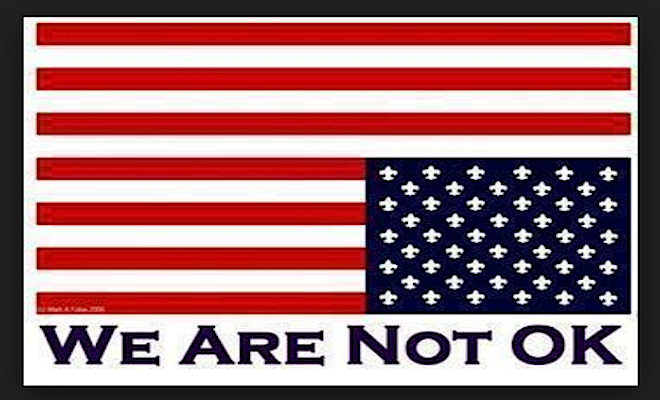
***
Joe Tasper drove down the street and saw it clogged with people up ahead. The people he saw had bats, pipes, and other weapons. Joe floored the gas. Some of the rioters thought they could intimidate the driver of the Chevy truck into stopping. For some reason they didn’t believe the driver was willing to run them over.
When the pickup rammed one of them, who went down and underneath, causing the vehicle to bounce roughly as the tires ran over the body, reality sank in. Cussing and screaming, they cleared the street as the truck bore down on them.
The crowd parted before Joe like the Red Sea before Moses. He slid to a stop right in front of the sporting goods store and threw the door open. He stepped out slinging the Mossberg around his back and pumping a shell into the breach of the police riot gun. He gave the looters no time to debate if he was as merciless on foot as he was behind the wheel, by blowing the nearest man right off his feet.
Some whirled and ran. Others backed away, then turned and ran. Joe fired into their backs for good measure. The shot had a good spread at that range and a couple of them yelped and went tumbling.
Joe posted himself in front of the door, screaming obscenities at the looters in his raw, scratchy voice. Somewhere in his fever-fogged mind he knew the cops were going to come for him eventually. He would kill every single one of them he could. They wouldn’t take him alive. If he didn’t have his brother’s family to worry about, he would go find some cops right now.
***
The mob decided to move on, hoping to find some easier prey farther out. In just a few blocks they crossed paths with the white mob from Polk Street. A rumble ensued.
The organizers of the various black rioting and looting forces remained in touch via cellphones. Some of their followers wanted to unleash their surprise weapons on the gang of rednecks. Their leaders insisted they save the big stuff for the po-po.
***
When the police finally did move out to suppress the riots, they dealt with the rumble-in-progress first. It was a shock to see that one of their cars had been captured. It meant the rumors were probably true about one of their own getting killed already.
And that pissed them off. They brought up an MRAP with a water cannon, and put some tear gas into the convulsing mass of humanity as well, but were more than happy to deal out deadly force on an individual basis to the young men who wanted to continue fighting. They would justify it all in the paperwork later.
There was solidarity among the boys in blue. There would be no whistle-blowing on each other.
But the looters in the melee with the Polk Street gang were only one faction. Other mobs were wreaking havoc in other parts of the city. When the cops finally engaged them, they ran into automatic weapons and rocket launchers. If the rioters had known anything about tactics, they would have killed hundreds–not just dozens–of the thin blue line.

